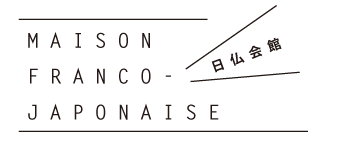A Brief History of Equality
en anglais avec traduction simultanée
| Date | mardi 07 juin 2022 / 16:30–19:45 |
|---|---|
| Lieu | Online |
| Conférencier | Thomas PIKETTY (EHESS). Discussants: Lisa HERZOG (Univ. of Groningen), UNO Shigeki (The Univ. of Tokyo) |
|
* In English with translation This conference will be held on the Zoom platform. After registering, you will receive a confirmation email containing information about joining the webinar.

It’s easy to be pessimistic about inequality. We know it has increased dramatically in many parts of the world over the past two generations. No one has done more to reveal the problem than Thomas Piketty. Now, in this surprising and powerful new work, Piketty reminds us that the grand sweep of history gives us reasons to be optimistic. Over the centuries, he shows, we have been moving toward greater equality. Piketty guides us with elegance and concision through the great movements that have made the modern world for better and worse: the growth of capitalism, revolutions, imperialism, slavery, wars, and the building of the welfare state. It’s a history of violence and social struggle, punctuated by regression and disaster. But through it all, Piketty shows, human societies have moved fitfully toward a more just distribution of income and assets, a reduction of racial and gender inequalities, and greater access to health care, education, and the rights of citizenship. Our rough march forward is political and ideological, an endless fight against injustice. To keep moving, Piketty argues, we need to learn and commit to what works, to institutional, legal, social, fiscal, and educational systems that can make equality a lasting reality. At the same time, we need to resist historical amnesia and the temptations of cultural separatism and intellectual compartmentalization. At stake is the quality of life for billions of people. We know we can do better, Piketty concludes. The past shows us how. The future is up to us. Program 16:30-16:45 Opening remarks 16:45-16:50 Introduction by Bernard Thomann, Director of the French Institute of Research on Japan, MFJ 16:50-17:00 Presentation of the symposium by its initiators, Gilles Campagnolo and Adrienne Sala (IFRJ-MFJ) 17:00-17:45 Keynote speech: A Brief History of Equality 17:45-18:30 Round table 18:30-19:40 General discussion 19:40-19:45 Concluding remarks by Franz Waldenberger, Director of the German Institute for Japanese Studies 
Moderators: Gilles CAMPAGNOLO (FRIJ-MFJ), Adrienne SALA (FRIJ-MFJ)
The evolution of human societies can be seen to be supported by the rise of dominant narratives - religions or political ideologies, which in turn reflect the technological regimes of the times (Y. N. Harari in Homo Deus, T. Piketty in Capital and Ideology). Technology changes not only our means of production; it influences how we interact with our environment, how we perceive ourselves and our place in the world and what we consider as “good” or “bad”. The present revolutions in information technology and bioscience seem to contradict the basic assumptions of liberalism. Platform monopolies, fake news and surveillance capitalism equally undermine liberal institutions. The present pandemic has also dramatically questioned the liberal foundations of public policies and governance in democratic regimes. The restrictive policy measures adopted in the fight against Covid-19 have produced “illiberal” outcomes similar to the stances taken by populist political parties. High-level constraints impact individual liberties, responsibility, social cohesion and/or social control, but also free trade, competitiveness and market regulation. How far are citizens prepared to accept trade-offs between civil liberties and public guarantees regarding health, environment, and safety? How are these constraints dealt with in so-called “liberal” or neoliberal” democratic countries? The above issue is of central and essential concern for Japan and Europe and their relationships with neighbors and major partners. Taking into consideration growing pressure from a more competitive environment, Japan and Europe need to redefine their understanding of core values with regard to economic, social and individual rights to redirect their relationships not only at an intellectual and discursive level, e.g. science and “soft-power”, but also in practical terms such as national and international policies. Rather than falling into the trap of cultural and civilizational determinism, this symposium aims to stress sociopolitical, philosophical and economic logics at work in the process of changes in production and exchange caused by the transformation of technological regimes and the ongoing global crisis. In doing so, we also intend to shed renewed light on the reception and the evolution of the liberal ideology in Asia and Europe, especially in Japan, France and Germany. |
* L'accès aux manifestations de la MFJ est gratuit (sauf mention contraire), mais l'inscription préalable est obligatoire.
Merci de vous inscrire depuis la page Agenda de notre site web.
Dans le cadre des mesures de sécurité renforcées, une pièce d'identité sera demandée à l'entrée.














